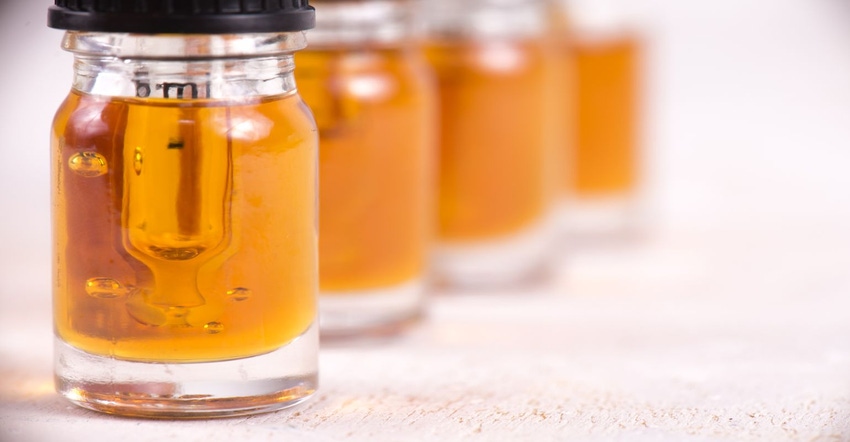Undisclosed THC threatens CBD market
Study finds even some “THC-Free” products contain THC.

Despite the best efforts of the responsible CBD sector—with QR codes on bottles directing consumers to Certificates of Analysis showing analytical test results of cannabinoid content—all too many products are not meeting label claims.
This is especially true with products proclaiming “THC-Free” status, with a new study showing nearly 1 in 4 such products do actually contain detectable levels of delta-9 THC—the cannabinoid with euphoric effects.
The fear is that unintentional delta-9 THC consumption may lead to positive drug tests.
“Consumers are taking hemp-derived CBD products without understanding the risks of unintentional consumption of delta-9 THC,” wrote the University of Kentucky College of Medicine researchers. “This accidental use of delta-9 THC could have adverse effects on health and safety as well as potential legal consequences (e.g., child custody, impaired driving), as delta-9 THC drug test findings could impact employment, military, and sport eligibility status.”
The researchers purchased 80 hemp CBD products off the shelves of local retailers in central Kentucky, which carried both local and national brands. These were extracted by solvent extraction and quantified by liquid-chromatography tandem mass-spectrometry (LC-MS/MS) using a validated method.
The analytical findings were compared to the label claims for CBD content.
Of the 80 products tested, 52 of which—65 percent—contained detectable levels of THC.
To be sure, anything other than a CBD isolate will have detectable levels of delta-9 THC. And to that end, the researchers used as a control the pharmaceutical drug, Epidiolex, a 98% pure CBD isolate that nevertheless also contained detectable levels of delta-9 THC, at 0.022 mg/mL.
The delta-9 THC concentration of the other samples ranged from 0.0008 to 2.071 mg/mL.
Of the 80 products tested, 37 contained CBD concentrations that were at least 10% different than the concentration listed on the label—12 products contained less than 90% of the listed CBD quantity, while 25 contained more than 110% of the CBD listed on the label.
This study follows a January report, by CBD market watcher Leaffeport, that tested 221 hemp CBD products and found that only 40% met label claim for stated CBD content.
“These data suggest that additional regulation is required to ensure label accuracy as nearly half of the products in this study were not properly labeled—that is, not within a 10% margin of error,” wrote the researchers. “The results of this study support the continued need for good manufacturing practices and testing standards for CBD products.”
The lead study author, Shanna Babalonis, serves as a consultant to the Canopy Growth Corporation, one of the world’s largest cannabis companies, based in Ontario, Canada.
About the Author(s)
You May Also Like






.png?width=800&auto=webp&quality=80&disable=upscale)